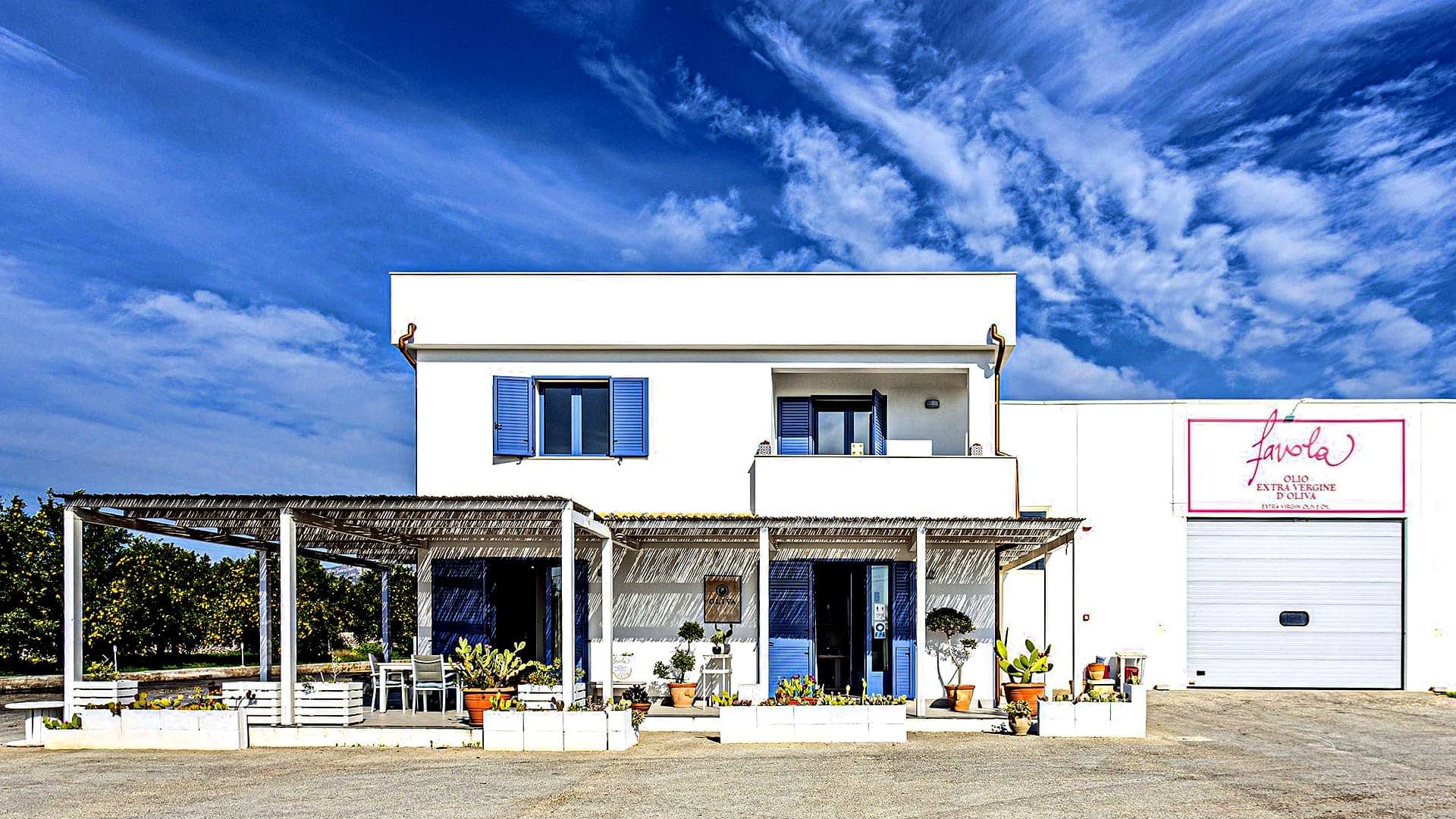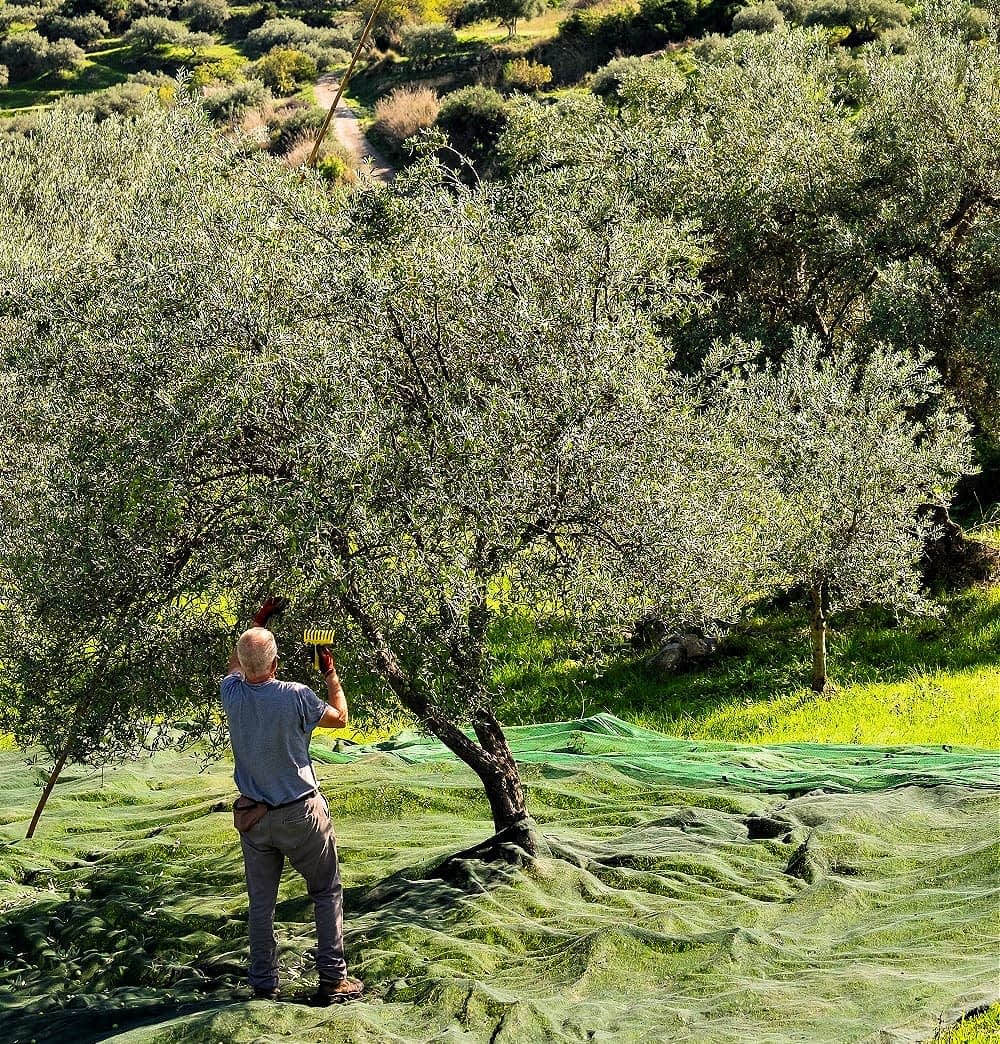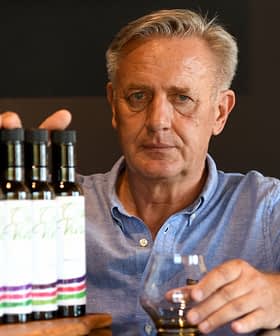Oliva: How Ancient Fables Become Award-Winning Olive Oils
Combining local varieties from ancient and young trees with organic practices and Sicilian terroir help Francesca Oliva's oils stand out.
 Francesca Oliva
Francesca Oliva A modern olive mill sits strategically between the mountains and sea in one of the world’s most famous oil-producing regions in southeastern Sicily.
Azienda Agricola Oliva welcomes visitors with prickly pear cacti, thousands of century-old olive trees and scores of colorful lemon trees.
We are proud to live in a friendly land full of colors and culture, and that is what our Favola (extra virgin olive oil) is about.
For years now, the Oliva family’s extra virgin olive oil has won coveted quality awards, including a Gold Award at the 2021 NYIOOC World Olive Oil Competition.
The small-scale, high-end producer boasts more than 5,000 olive trees, and their olive oils have been featured in local restaurants for decades. The family started its olive oil adventure in 1957, and the founders built strong roots within the local community.
See Also:Producer ProfilesOliva means olive in Italian. In Sicily (and elsewhere in southern Italy, too), many common surnames are connected to the traditional economic activities of the region.
“Our family surname comes from the history of this area, where olive growing has ancient roots,” Francesca Oliva, the company’s owner, told Olive Oil Times. “In more recent times, since the 1960s, our olive oil mill transformed olives from the whole area and the family also used to buy olives from growers in adjacent locations.”
“Given the growing interest shown by our international guests and friends from abroad, in 2013, we decided to turn our operations into a company focused on our olive trees,” she added. “The excellence of the product helped us to reach abroad.”
“Since then, we have slowly added new olive orchards to our land,” Oliva continued. “We do also plant new orchards. But we do not aim at becoming large-scale olive oil producers, as we aim for quality, organic and sustainable production.”
One of the drivers of the Oliva family’s efforts to reach the international market was the many guests visiting the mill and tasting their extra virgin olive oils.

Today oleotourism is the focus of recent Italian legislation paving the way to a new form of tourism. The latest effort to promote traditional olive oil production comes on the heels of the success of enotourism, which has combined tourism and wine production in the last couple of decades.
“We have been greeting our visitors for many years before the law,” Oliva said. “When they arrive, we show them around, let them discover the extra virgin olive oil’s best qualities, have them taste our products and get to share with them the passion and the work behind such excellency.”
The Oliva family’s main olive varieties include the local Tonda Iblea, both for olive oil and table olive production. Strong and tall, Tonda Iblea trees thrive in the island’s gentle hills and are also known for their large drupes.
From these drupes, the Oliva family produces Favola, “fable” in English, an award-winning organic extra virgin olive oil.
“Our olive oil represents the roots of agricultural Sicily, of a time, not too far gone in which farmers and workers shared their days in the farm, gathering at night around the same table to narrate to each other the cunti, the traditional tales told to entertain guests,” Oliva said.
“Favola is a small piece of our history,” she added. “It is also the tale of our food culture, a product harvested and bottled by hand.”
Favola is a robust monovarietal with tasting sensations of artichoke, red chili pepper, tomato and herbs.
“We do not use chemical treatments on our olive trees,” Oliva said. “We carefully follow every step of ripening and hand-harvest at the best possible moment of the season. Usually, it would be an early harvest to confirm Favola’s unique qualities year after year.”
Within 12 hours of the harvest, the olives reach the highly technological family mill and are transformed into extra virgin olive oil.
“We are proud to live in a friendly land full of colors and culture, and that is what our Favola is about,” Oliva said. “Tonda Iblea is the most valuable cultivar of the Syracuse area. Its characteristics produce the green tomato leaf fruity tasting sensation that makes it recognizable and often unforgettable.”
The Oliva family also grows Cerasuola olives, the trees of which can easily be spotted across western Sicily. Using this other local variety, the Oliva family also produces the Sicilian monovarietal PGI (Protected Geographical Indication).
Among the characteristics of the Cerasuola variety, it is resilient to drought and a hotter climate.
“Yes, our orchards are actually very close to the meteorological station, which reported the highest temperature on record last year,” Oliva said.

In July 2021, heatwaves in southern Italy provoked unheard-of temperatures, including the 48.8 ºC recorded in Sicily, a record-high for continental Europe.
This heatwave was followed by excessive rainfall, which stretched into the first weeks of the olive harvesting season.
“Still, the current season’s harvest is modest in terms of quantity, but the quality has increased over the most recent years,” Oliva said.
The Oliva family also uses Cerasuola olives in their Favola blend, along with the Sicilian Nocellara Etnea variety.
“Nocellara Etnea usually has got a slight fruitiness, bitterness and pungency of light or medium intensity,” Oliva said. “It can remind notes of almond and, sometimes, ripe fruit.”
The family also produces a monovarietal Moresca extra virgin olive oil, touted for its high polyphenol content. The variety is also widely appreciated by farmers for its mostly consistent yields, which are only partially affected by olive trees’ typical alternate bearing pattern.
Compared to the Tonda Iblea monovarietal, Moresca olives produce a less pronounced, fruity olive oil, with just a few bitterness and piquant notes and scents of almond and green apple.
Among the Oliva family’s goals is to provide their customers with a better understanding of extra virgin olive oil and its pricing. Olive argued that this education simply begins with tasting the product.
“Producers should get together to give the right value to their products,” Oliva said. “They could approach the consumers in novel ways, make their customers taste the different cultivars and understand their characteristics.”
“It does not require a professionally educated palate to appreciate the flavor of an excellent extra virgin olive oil when compared to lower quality olive oils,” she added. “Excellent extra virgin olive oil cannot be sold at an unsustainable price.”
The family also invests in intelligent packaging for their extra virgin olive oils, with its bottles traditionally shipped in recyclable and reusable light-protected containers.
“When we talk about selling extra virgin olive oils to households, large tin cans should be outlawed,” she said. “Families buy that tin. Then they have to pour it in other containers, which puts quality and resilience in danger.”
“Those tins also retain part of the products, which is unacceptable given the quality,” she added. “More should be done to give value to the products.”
Apart from traditional bottles, the family has also invested in other formats, such as 25-milliliter containers, often sold to restaurants. This packaging method also protects the product while allowing interested customers to taste the different varieties’ flavors.
“We believe that olive farming can be a valuable driver for change while also supporting other businesses,” Oliva concluded. “It can produce new value for tourism and increase interest in developing a new green economy.”








